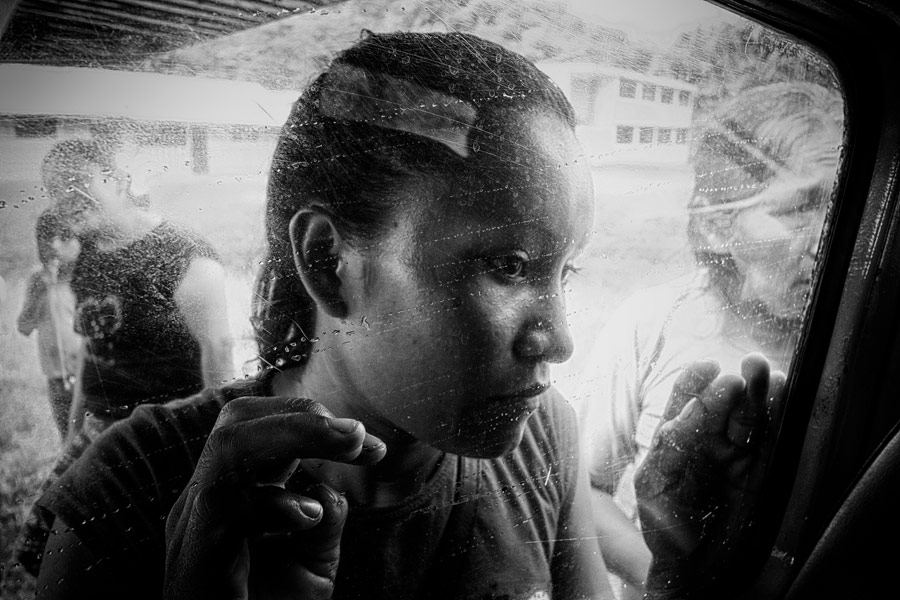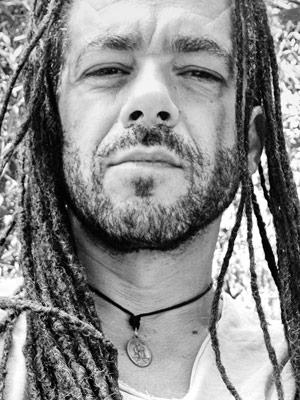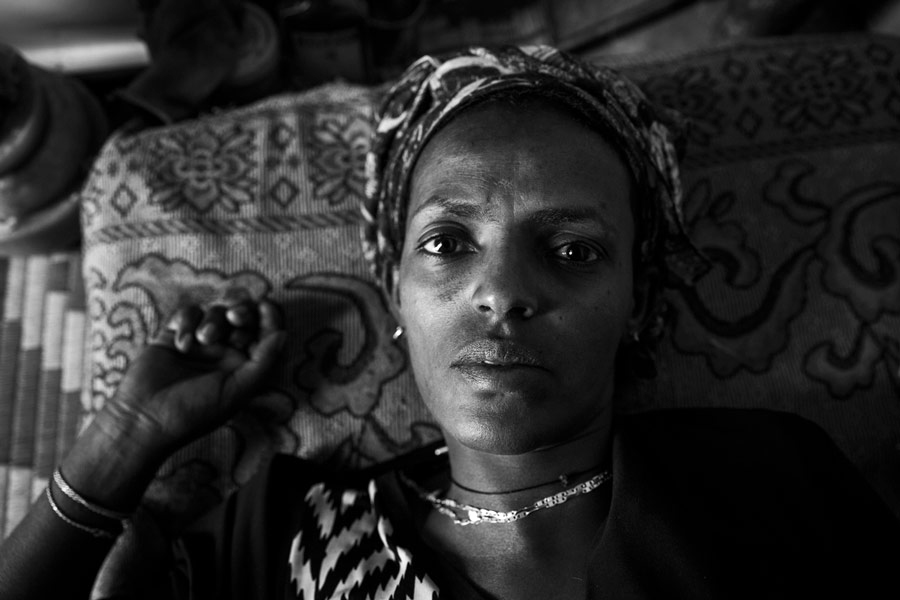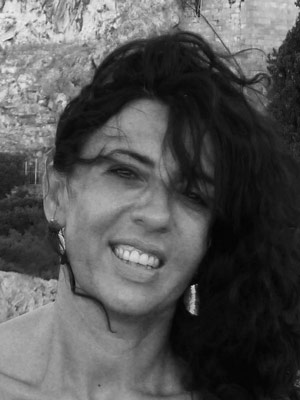J O I N U S : D O C U M E N T A R Y M A T T E R S
2023 ZEKE Award Winners
Wednesday, May 24, 1:00 pm EDT via Zoom
Nicola Ókin Frioli and Cinzia Canneri

Left: Nicola Ókin Frioli. Right: Cinzia Canneri

Free and open to the public but registration is required.
First Place: ZEKE Award for Systemic Change
Nicola Ókin Frioli
Piatsaw: A Document on the Resistance of the Native Peoples of Ecuadorian Amazon Against Extractivism
Ecuador
Piatsaw was the first man, and God, of the Sapara mythology who prophesied the end of the culture of his people.
 This photo-documentary tells the story of the resistance that the Indigenous people of the Ecuadorian Amazon have waged against extractive companies that threaten their territories through continuous concessions and contamination caused by the oil company Texaco, during its presence in the country. In 1964, Texaco (now Chevron), arrived in Ecuador with a concession of 1.5 million hectares in the provinces of Sucumbíos and Orellana. At that time, they were extracting oil from the 450,000 hectares in their ownership. The oil giant admitted in court to having dumped 19 billion gallons of crude oil and harmful chemicals directly into unlined rivers and pools in a particularly biodiverse region of the Ecuadorian rainforest over decades. The inhabitants of the region suffered the consequences of extraction, their health and future were affected by contaminants present in the soil and groundwater, quantities exceeding permissible levels in Ecuador.
This photo-documentary tells the story of the resistance that the Indigenous people of the Ecuadorian Amazon have waged against extractive companies that threaten their territories through continuous concessions and contamination caused by the oil company Texaco, during its presence in the country. In 1964, Texaco (now Chevron), arrived in Ecuador with a concession of 1.5 million hectares in the provinces of Sucumbíos and Orellana. At that time, they were extracting oil from the 450,000 hectares in their ownership. The oil giant admitted in court to having dumped 19 billion gallons of crude oil and harmful chemicals directly into unlined rivers and pools in a particularly biodiverse region of the Ecuadorian rainforest over decades. The inhabitants of the region suffered the consequences of extraction, their health and future were affected by contaminants present in the soil and groundwater, quantities exceeding permissible levels in Ecuador.
Following the events that indelibly marked the future of many families, the Native peoples of the Ecuadorian Amazon, threatened by the continuous concessions to companies for extractive activities, applied different defense methodologies against mining, oil companies and the government. Armed confrontations, national strikes and their presence in the courts were the strategies that the Indigenous nationalities used to stop the loss and destruction of their territories as they consider their environment part of their body and plants and animals are the other members of their society.
 Nicola Ókin Frioli is an Italian freelance photographer. He graduated in fine arts and worked for 20 years in documentary photography and advertising campaigns. In these 20 years, he has traveled mainly in Mexico and the Ecuadorian Amazon. He has lived in Mexico for the past 15 years with his two dogs. His work has been published in magazines such as Washington Post, Time Magazine, The Guardian, Stern, El País Semanal, Geo, GUP, British Journal of Photography among others.
Nicola Ókin Frioli is an Italian freelance photographer. He graduated in fine arts and worked for 20 years in documentary photography and advertising campaigns. In these 20 years, he has traveled mainly in Mexico and the Ecuadorian Amazon. He has lived in Mexico for the past 15 years with his two dogs. His work has been published in magazines such as Washington Post, Time Magazine, The Guardian, Stern, El País Semanal, Geo, GUP, British Journal of Photography among others.
First Place: ZEKE Award for Documentary Photography
Cinzia Canneri
Women’s Body as Battlefield
Ethiopia
 The targeting of women’s bodies in times of war, but also in times of peace, has come to light as a systematic strategy that has been used by different actors in many different contexts worldwide. This project has analyzed the condition of Eritrean and Tigrinya women who moved across the borders of three countries geopolitically linked to one another: Eritrea, Ethiopia and Sudan. From 2017 to 2019, the work has documented Eritrean women fleeing from one of the most repressive regimes in the world and seeking refuge in Ethiopia. From November 2020, following the invasion of Tigray (Ethiopia) by the Ethiopian Federal Army supported by the Eritrean military forces and Amhara militia, the project’s focus has broadened to include also the Tigrinya women, who joined Eritrean women in their escape from Ethiopia to Sudan. In Tigray, the Eritrean army used sexual violence as a weapon of war against both Eritrean and Tigrinya women: to punish those fleeing their country in the former case, and as an act of extermination in the latter. The body of women became a battlefield on which there are no sides.
The targeting of women’s bodies in times of war, but also in times of peace, has come to light as a systematic strategy that has been used by different actors in many different contexts worldwide. This project has analyzed the condition of Eritrean and Tigrinya women who moved across the borders of three countries geopolitically linked to one another: Eritrea, Ethiopia and Sudan. From 2017 to 2019, the work has documented Eritrean women fleeing from one of the most repressive regimes in the world and seeking refuge in Ethiopia. From November 2020, following the invasion of Tigray (Ethiopia) by the Ethiopian Federal Army supported by the Eritrean military forces and Amhara militia, the project’s focus has broadened to include also the Tigrinya women, who joined Eritrean women in their escape from Ethiopia to Sudan. In Tigray, the Eritrean army used sexual violence as a weapon of war against both Eritrean and Tigrinya women: to punish those fleeing their country in the former case, and as an act of extermination in the latter. The body of women became a battlefield on which there are no sides.
 Cinzia Canneri is a photojournalist based in Italy and she has specialized in stories about the human condition, social change, gender and immigration issues. Working extensively in the Horn of Africa, she has photographed the condition of women from a political, social and cultural point of view. She has been published in international magazines such as New York Times, Days Japan, 6mois, L’OBS, XL Semanal, Aftenposten Innsikt, Mind, Open Migration and Washington Post. Her project “Like Two Wings” won an award of excellence in category Science & Natural History Picture, POY 2017 and her project “Women’s Body as Battlefield’ won the first place in the category Issue Reporting Picture Story, POY 2022. Canneri obtained her Master in Photojournalism at WSP in Rome and studied photography at the Fondazione Marangoni school in Florence. She has a degree in Psychology and she worked for many years in a Department of Mental Health. This has allowed her to develop communication and relational skills which are important also in her work as a photographer.
Cinzia Canneri is a photojournalist based in Italy and she has specialized in stories about the human condition, social change, gender and immigration issues. Working extensively in the Horn of Africa, she has photographed the condition of women from a political, social and cultural point of view. She has been published in international magazines such as New York Times, Days Japan, 6mois, L’OBS, XL Semanal, Aftenposten Innsikt, Mind, Open Migration and Washington Post. Her project “Like Two Wings” won an award of excellence in category Science & Natural History Picture, POY 2017 and her project “Women’s Body as Battlefield’ won the first place in the category Issue Reporting Picture Story, POY 2022. Canneri obtained her Master in Photojournalism at WSP in Rome and studied photography at the Fondazione Marangoni school in Florence. She has a degree in Psychology and she worked for many years in a Department of Mental Health. This has allowed her to develop communication and relational skills which are important also in her work as a photographer.
Co-sponsor:
 |
 |